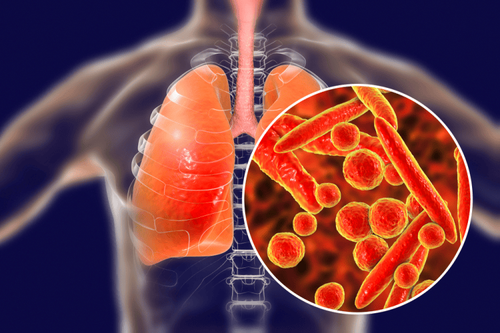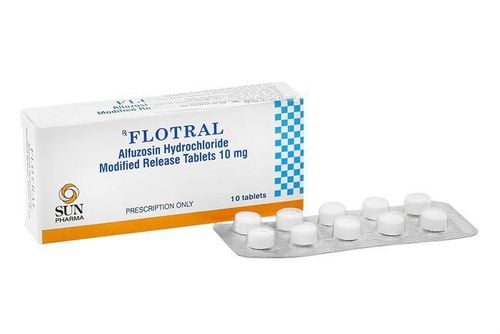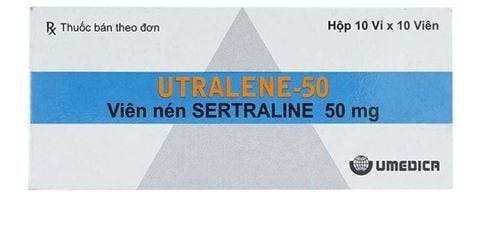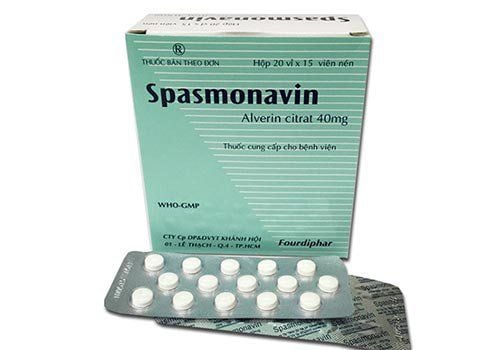This is an automatically translated article.
Peteha's main active ingredient is Prothionamide, which is often used in combination with other drugs in the regimen to treat multi-resistant tuberculosis. The mechanism of action of the drug is to inhibit the synthesis of mycolic acid in the bacterial cell wall.1. Uses of the drug Peteha
Peteha is a product of the company Fatol Arzneimittel GmbH, prepared in the form of film-coated tablets. The drug has the main active ingredient is Prothionamide, a derivative of the thiamides group. The drug is active against Mycobacterium tuberculosis and Mycobacterium leprae. The mechanism of action of Prothionamide is the inhibition of bacterial cell wall mycolic acid synthesis similar to that of Ethionamide and Isoniazid. Resistance will develop rapidly if Prothionamide is used alone. Peteha is indicated in multidrug-resistant tuberculosis (MDR-TB) as a second-line agent in combination with other sensitive anti-TB drugs. The use of Peteha is contraindicated in patients with a history of allergy to Prothionamide and in patients with severe hepatic impairment.2. Dosage and usage of the drug Peteha
Dosage:Prothionamide is usually used in the form of tablets with the strength of 125mg and 250mg. The usual Peteha dose per day is 500mg to 1g, depending on the patient's body weight and tolerability. Some patients may be able to take higher doses of 750mg/day (750mg for patients weighing 50kg or more, 500mg for patients weighing less than 50kg). The highest daily dose is 15-20mg/kg or 1g. For patients with glomerular filtration rate less than 30ml/min and patients on dialysis, the recommended dose is 250-500mg/day depending on body weight. For patients with severe renal impairment, blood levels should be monitored to adjust the dose accordingly. How to use: Petaha drug is taken orally, divided into 2-3 times / day or used only 1 time after dinner
3. Side effects of the drug Peteha
Prothionamide is generally better tolerated than Ethionamide, but side effects are roughly similar. Tolerance to Peteha varies across races, with Africans and Asians generally tolerating the drug better. The main side effects when using Peteha include:Epigastric discomfort, loss of appetite, abdominal pain, stomatitis, nausea, vomiting, belching with metallic and sulfurous odor. Vomiting and profuse salivation may occur. Neurological reactions include hallucinations and depression. Hypoglycemia may occur, especially in patients with diabetes. Hepatitis can occur in about 10% of cases but is rarely serious. When liver damage occurs, jaundice and other symptoms such as elevated transaminases persist (approximately 6-8 weeks), the patient should stop taking Peteha. Long-term Peteha treatment with large doses can reduce thyroid activity and cause goiter. Symptoms will resolve on their own when the drug is stopped. Other side effects include gynecomastia, optic neuritis, blurred vision, olfaction disturbances, skin rash, peripheral neuritis, photosensitivity.
4. What are the precautions when using Peteha?
Peteha should not be used in patients with severe hepatic impairment because the drug is metabolized mainly in the liver. Liver function tests should be performed before and during treatment. Infants and Children: The optimal Peteha dose for infants and children has not been established. Blood glucose, thyroid function and visual function should be monitored when using Peteha with caution when using Petaha in patients with depression or other mental illness, patients with acute gastritis, stomach ulcers gastric ulcer or duodenal ulcer, the patient coughs up blood, coagulopathy. Elderly: No dose adjustment of Peteha is required for the elderly. Pregnancy: The safety of prothionamide in pregnant women has not been established. However, there is conflicting evidence of teratogenicity in infants born when mothers use Ethionamide homologous to prothionamide during pregnancy. Therefore, Prothionamide should not be used during pregnancy or to women intending to become pregnant unless the benefits outweigh the risks. Lactation: It is not known whether Prothionamide is excreted in human milk. Use caution when using Peteha for women who are breastfeeding.5. Drug interactions
Drug interactions can affect the effectiveness of treatment and/or increase side effects. Patients need to inform their doctor of all prescription and over-the-counter medicines, supplements, and vitamins they are taking for advice. The following are interactions to note when using Peteha:Peteha changes the effect of oral hypoglycemic drugs and disrupts blood sugar levels. When Peteha is used concurrently with Isoniazid, the drug will increase the serum concentration of Isoniazid. Hepatotoxicity may be increased when Peteha is used in combination with Rifampin and Thioacetazone. The article has provided an overview of the drug Peteha. This is a prescription drug and should be used exactly as prescribed by your doctor to prevent resistant TB bacteria. Patients should consult a healthcare professional before use.













